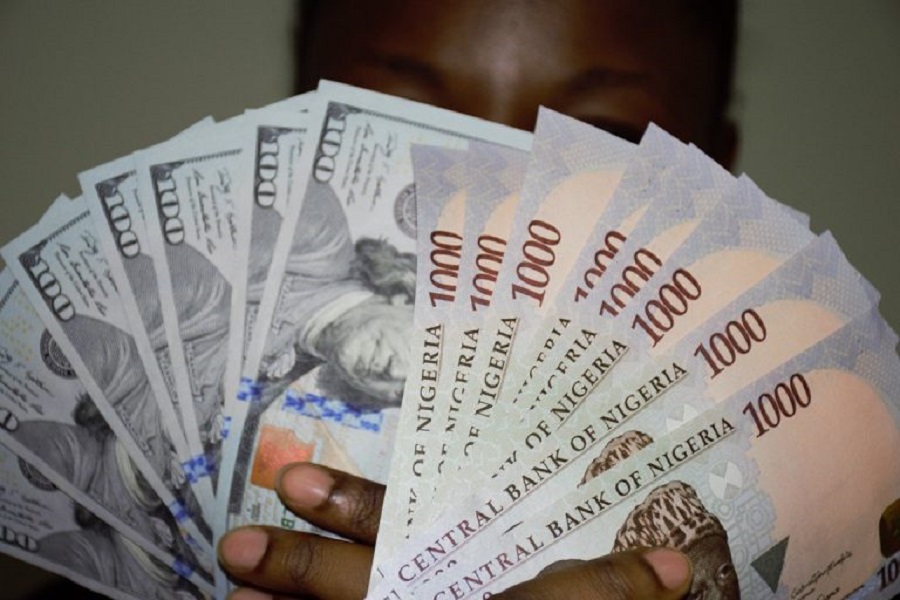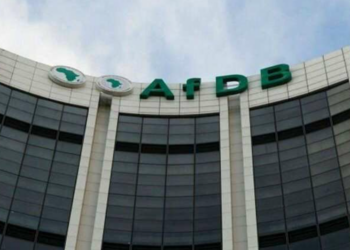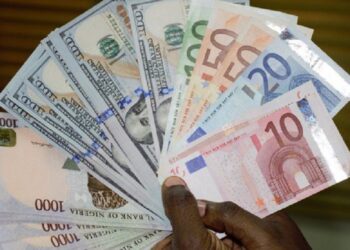Tuesday, 14th December 2021: The exchange rate between the naira and the US dollar closed at N414.80/$1 at the official Investors and Exporters (I&E) window.
Naira depreciated against the US dollar on Tuesday to close at N414.80/$1. This represents a 0.18% drop when compared to the N414.06 that was recorded in the previous trading sessions as a drop in the country’s external reserves continues with a decline of $17 million.
However, the naira remained stable against the US dollar on Tuesday as it closed at N575/$1. This was the same rate that was recorded in the previous trading session. This is according to information obtained from BDC operators interviewed by Nairametrics
The local currency gained at the official market as the forex turnover improved significantly by 211.14% during Tuesday’s trading session.
Trading at the official NAFEX window
The exchange rate at the Investors and Exporters window depreciated to close at N414.80/$1 on Tuesday, representing a 74 kobo drop when compared to the N414.06/$1 that was recorded at the last trading session.
The opening indicative rate appreciated to close at N414.03/$1 on Tuesday, December 14, which represents a 2 kobo gain when compared to the N414.05/$1 that was recorded in the previous trading session.
An exchange rate of N444/$1 was the highest rate recorded during intra-day trading before it settled at N414.80/$1, while it sold for as low as N405/$1 during intra-day trading.
Forex turnover at the official window rose significantly by 211.14% to trade at $377.88 million on Tuesday.
According to data tracked by Nairametrics from FMDQ, forex turnover at the I&E window increased from $121.45 million on Tuesday 14th December 2021, to $377.88 million on Tuesday 14th December 2021.
Crude oil price
Oil extended its losses for a third day on Tuesday evening with Brent crude dropping by 1.23% to trade at $72.79 per barrel as International Energy Agency says global oil market has returned to surplus, while some countries tightened restrictions in an effort to curb the Omicron Covid-19 variant.
Oil declined for a third day as further restrictions were imposed to counter the spread of the omicron Covid-19 variant while the outlook for demand in China dimmed as Beijing cracks down on the virus, pollution and rule-breakers.
Futures in New York tumbled to below $70 a barrel, extending this week’s decline to more than 2%.
China, the world’s biggest importer of crude, is set to start 2022 with a subdued appetite that will partially offset the traditional increase in demand from refineries to replenish inventories during the winter months.
This week, the American Petroleum Institute (API) estimated the inventory draw for crude oil to be 815,000 barrels.
The West Texas Intermediate went down by 1.27% to trade at $69.83 per barrel. Natural gas went up by 1.33% to trade at $3,797 while OPEC Basket dropped by 1.41% to trade at $74.03 per barrel.
On the other hand, Nigerian crude, Bonny Light went up by 1.30% to trade at $73.51 per barrel.
Cryptocurrency watch
The world’s largest and most popular cryptocurrency, Bitcoin, went up by 3.60% to trade at $48,308.04 after sliding earlier on Tuesday as the Bank of England warned on the dangers of cryptocurrency.
Cryptocurrency prices surged early hours of Wednesday as Ethereum surged marginally and Dogecoin went up after Tesla Inc Chief Elon Musk said on Tuesday the electric carmaker will accept Dogecoin as payment for merchandise on a test basis, sending the meme-based cryptocurrency up over 20%.
The global cryptocurrency market capitalization today is $2.3 Trillion, which is a 2.5% increase in the last 24 hours and the total cryptocurrency trading volume in the last day is at $118 billion, according to popular data provider CoinGecko.
Bitcoin has retreated more than 30% from an all-time high of almost $69,000 on Nov. 10. Proponents argue the drop is temporary because retail and institutional buyers are increasingly dipping into crypto investments.
Meanwhile, Ethereum, the world’s second largest cryptocurrency by market capitalization went up by 4.02% to trade at $3,861.62
External reserves
Nigeria’s external reserve dropped by 0.04% on Friday, 10th December 2021, to close at $40.888 billion. This represents a decrease of $17 million compared to $40.905 billion recorded as of the previous day.
The consistent decline that had been experienced in the country’s reserve level could be attributed to the continuous intervention of the apex bank in ensuring the stability of the exchange rate.
It is worth noting that the nation’s foreign reserve had gained $5.99 billion in the month of October, as a result of the $4 billion raised by the federal government from the issuance of Eurobond in the international debt market.
In the month of November, Nigeria’s external reserve lost $633.47 million in value as against a gain of $5.99 million recorded in the previous month and $2.76 million gain in September 2021. On a year-to-date basis, the reserve gain has reduced to $5.74 billion.

















